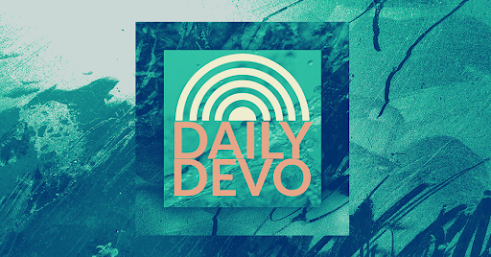Forgiven to Forgive
Let me share a little secret with you... when I write these Devos, most of the time I am writing them to myself before I even think about the fact that hundreds of you will read them.
I often share my own struggles, wrestle with my own questions, get vulnerable, show anger, talk about grief and depression, and anxiety... not so anyone will think that I am brave, but because I don't know any other way to do this.
Along the way, I've discovered that there are more than a few others who tend to share some of the same struggles I'm describing as I write. We're all connected, after all. It's good to know we're not alone.
Out of all of the topics I write about, the one that seems to land the hardest on most of us is the topic of forgiveness.
Quite honestly, the feelings I feel when it comes to the idea of forgiving myself and others, are marked with angst, dread, anger, frustration and sorrow. Oh, and mix some shame up in there, and we've probably got it just right.
For most of us, our thoughts and feelings about forgiveness are distorted by a very destructive and insidious belief: We don't really find ourselves worthy of forgiveness, which makes it far more difficult to extend it to others.
It also makes it much more challenging to embrace God's grace for us as well, which then sends us hurtling down a path of shame, anger, and eventually bitterness.
Some time ago, I read an excellent quote by Bishop Desmond Tutu about forgiveness, and I wrote it down to think about it more deeply. It took a while to understand it, but I'd like to share what I've learned. First the quote:
I would like to share with you two simple truths: there is nothing that cannot be forgiven, and there is no one undeserving of forgiveness. When you can see and understand that we are all bound to one another—whether by birth, by circumstance, or simply by our shared humanity—then you will know this to be true.
If you are like me, when you first read this quote, you pushed back against it a bit because you probably started thinking about all of the people throughout history who did unforgivable things.
Then you let your thoughts touch on the people in your own life who have wounded you. And then you decided that you didn't really like the quote all that much even though you suspected it might be true.
Trust me, I did the same thing.
So forget about all of those people on your list of unforgivable people just for a moment. I want you to read this quote as if it's been written about you.
"...there is nothing that you have done that cannot be forgiven, and you are never undeserving of forgiveness."
Start with this as you ponder the challenges of forgiveness. Instead of qualifying other people as to whether they deserve forgiveness, focus on yourself.
Think about all of the ways you have beaten yourself up in the past, felt shame over things that you have done, or that have been done to you. Consider the ways that you may be withholding forgiveness from yourself.
Because before you can begin the process of learning to forgive others, you have to learn to forgive yourself and more importantly to see that yourself as a cherished, adored, and forgiven child of God.
Look yourself in the mirror today with this in mind, and say this short prayer/mantra as you do:
I forgive you. You are forgiven to forgive. So forgive and be set free to live.
May it be so for you today and every day from this day. And may the grace and peace of our Lord Jesus Christ be with you now and always. Amen.




Comments
Post a Comment
Thanks for leaving a comment! If you comment Anonymously, your comment will summarily be deleted.